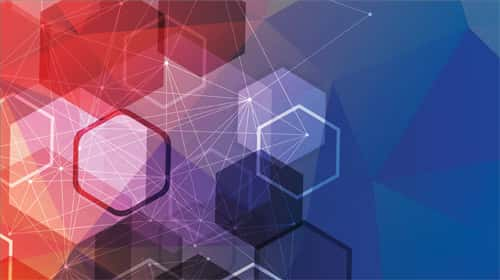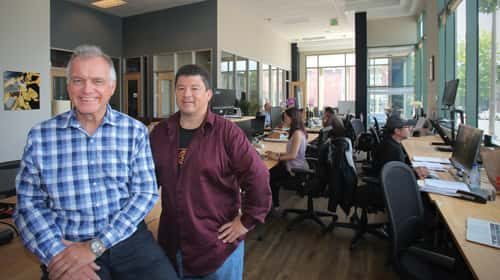
Marin County is fertile ground for entrepreneurship. Good ideas abound, but it requires nurturing to take a concept and shape it into a successful business, especially for individuals just starting out. Thus, when VenturePad, an entrepreneurship center in San Rafael, opened in March 2017, one intent was to meet the physical needs of businesspeople by providing co-working and meeting spaces. Another equally important goal was to serve as an education resource and provide access to a set of advisors who could share their expertise with budding entrepreneurs and help new enterprises grow.
“The mission of the business is to support, promote and activate impact entrepreneurship in the North Bay,” says president and co-founder Chris Yalonis. Less than 18 months after he and vice president of marketing and co-founder Alejandro Moreno opened the doors, VenturePad is chalking up significant accomplishments.
Vision
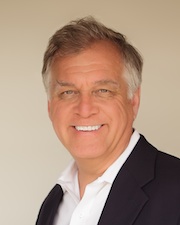 The idea for VenturePad emerged when Yalonis began exploring opportunities for a start-up in Marin County. He spent time working in new ventures, including Autodesk in its early days and MarketTools, which developed the software that became Survey Monkey. He had the requisite experience. “This is my sixth start-up here in Marin. I’d seen tech success and what it took to start and scale businesses,” he says. With that track record and the desire to try something new, he considered co-working—a relatively new model—as a possibility, and in the course of doing research, he discovered that the kind of facility he envisioned didn’t exist in central Marin. Furthermore, the county’s two business incubators, the Renaissance Center for Entrepreneurship and Venture Greenhouse, which had helped launch more than 300 small businesses, had both closed in 2015, leaving a gap to be filled. Yalonis and Moreno, who had been head of marketing and operations for Venture Greenhouse, took action and devised a plan to provide co-working spaces, but offer networking and support as well, thus breaking new ground. “I had never started a new business with no competition,” says Yalonis. Filling a need that was unmet was a rare opportunity to do something meaningful that could benefit the local business community and be personally satisfying as well.
The idea for VenturePad emerged when Yalonis began exploring opportunities for a start-up in Marin County. He spent time working in new ventures, including Autodesk in its early days and MarketTools, which developed the software that became Survey Monkey. He had the requisite experience. “This is my sixth start-up here in Marin. I’d seen tech success and what it took to start and scale businesses,” he says. With that track record and the desire to try something new, he considered co-working—a relatively new model—as a possibility, and in the course of doing research, he discovered that the kind of facility he envisioned didn’t exist in central Marin. Furthermore, the county’s two business incubators, the Renaissance Center for Entrepreneurship and Venture Greenhouse, which had helped launch more than 300 small businesses, had both closed in 2015, leaving a gap to be filled. Yalonis and Moreno, who had been head of marketing and operations for Venture Greenhouse, took action and devised a plan to provide co-working spaces, but offer networking and support as well, thus breaking new ground. “I had never started a new business with no competition,” says Yalonis. Filling a need that was unmet was a rare opportunity to do something meaningful that could benefit the local business community and be personally satisfying as well.
The pair began developing the concept, but they also had another goal: creating a business with a high social impact and a low environmental impact. Moreno had earned a green masters in business administration from Dominican University of California, and Yalonis had studied sustainable management at Presidio Graduate School in San Francisco. “It transformed the way I looked at business,” says Yalonis. “Business has a social and environmental responsibility as well as opportunity,” he adds, explaining that a successful business benefits from having a triple bottom line: people, planet and profit. While he and Moreno wanted to put their entrepreneurial abilities to good use, sustainability was also a priority, as was giving back to the community, and those values were instrumental in defining their vision for VenturePad. The company is a Marin certified green business and a deep green MCE customer, which means 100 percent of its energy comes from renewable sources, and achieves a near zero waste stream each month. He observes that many of the businesses that came out of the Renaissance Center and Venture Greenhouse had positive social and environmental impacts. As an example, he mentions TrimTab Media of Sebastopol, a video agency that works with socially and environmentally responsible businesses and nonprofits. “We think VenturePad can bring values aligned with those companies,” he says. “It’s a constant balancing act around our careers. We want to give back and have fulfillment, but we want to make a living at it, too.”
As plans progressed, Yalonis and Moreno had to decide on a location and then search for an appropriate space. They eventually settled on downtown San Rafael, reasoning that businesses need to be close to amenities such as banks and restaurants. It took six months to find a building, however, because they encountered remote landlords who had little interest in the community or supporting the growth of local business, as well as asking for deposits that were unaffordable. Then, with the help of Newmark Cornish & Carey, they found a building on B Street belonging to Marin developers Jonathan Parker and Tom Monahan, who offered them a good deal so they could get started. According to Yalonis, it was essential to find a landlord who was interested in the community and would understand the potential, since VenturePad is self-funded.
Next, the building, which was once a bank, required a complete overhaul. “If you saw this place, it was a shell,” Yalonis says. Among the improvements, it needed walls, windows, new floors and lighting that would meet California’s Title 24 energy efficiency standards. They retained architect Simon Russell, who miraculously acquired the permits required in only three weeks in December 2016. On January 3, 2017, they were ready to go, with Loic Humbert as the general contractor. “He got this entire project done in two months,” says Yalonis. The result was a building with large expanses of glass to let in the natural light, LED lights, non-VOC paint, materials that are sustainably harvested and wooden tables built from sustainable products, such as bamboo or reclaimed wood. ”We wanted to model low-impact, low-carbon values,” says Yalonis. With construction completed, Venture Pad was ready to show off its new digs and had its official opening in partnership with the San Rafael Chamber of Commerce on March 9, 2017, with San Rafael Mayor Gary Phillips cutting the ribbon.
Connections
With the new center open for business, Yalonis and Moreno proceeded to the next step: building a community. A substantial number of people in Marin County work from home, but while the practice is a boon for those striving to achieve a balance between business and home life, for many, it can be distracting and isolating. Humans are social beings, and require interaction with other people. Socializing in a business setting allows meaningful connections and stimulates the creative discussions that help good ideas evolve into great ones. Yalonis and Moreno recognized that VenturePad could be a complement to home offices, with co-working spaces that would give employees a place to mingle with other like-minded individuals and meeting rooms that would provide a private and professional place to confer with clients and business associates. It would also allow a sense of community, which leads to greater productivity.
Among VenturePad’s members is Mary Ann Maggiore, the head of LAUNCH, a nonprofit organization that works with Millennials to help guide them to find meaningful and lucrative employment. “I’m basically a solopreneur,” she says, but rather than working alone, she prefers to be part of a community. Membership at VenturePad provides the missing piece, and she’s at a desk or in a phone booth there almost every day. “The energy of working together is expansive and centers you. You do more, and you’re more focused. It increases productivity,” says Maggiore. She finds VenturePad beautiful and affordable at the same time, and her clients feel comfortable meeting her there. Plus, she enjoys the camaraderie with other members. “Once in a while we meet for a happy hour and talk about our work. We’re developing a supportive community,” she says.
For Menno Van Rossum, it’s about quality and lifestyle. He is U.S. managing director for NewCompliance, a company in the Netherlands that produces software solutions to increase hygiene and efficiency in hospitals. His company has an office in San Francisco, but he doesn’t have to be there every day, and VenturePad gives him the perfect place to work in Marin County, where he lives. He observes that it makes sense to stay closer to home sometimes so he can work more efficiently while still being in a professional environment, and VenturePad allows him to do that. “It’s the most pleasant and professional co-working space I’ve found,” he says. “The two founders organize everything really well. It’s a great atmosphere. It gives me the feeling I have colleagues and work in an office.”
Incubation
Building a support system for entrepreneurs and small businesses and providing training, advisory support and peer networking to support young companies, were essential components of the founders’ vision, and those services were an integral part of VenturePad’s model from the beginning.
“It’s important because it enables the support and activation of start-ups,” says Yalonis. Along the way, VenturePad has cultivated an incubation model, a collaborative learning environment that allows people inexperienced in many of the aspects of business to spend several months learning good practices and participating in opportunities for professional development with experts in fields such as marketing and finance. Yalonis describes it as a cohort form, with several people in a classroom with an instructor, who delivers content either face-to-face or online. Participants get to test ideas, business models and prototypes, and while some might evolve into a business, not all do.
“People get fired up about ideas, but they don’t necessarily make a business,” he points out. First in the process, members acquire the knowledge to make an informed decision, and some might decide that it’s not worth the time and investment to go any farther, while others might find a pivot that makes it worth pursuing. Should they decide to move forward, the next step is learning about distribution and marketing strategy, and developing the new service or product. A big milestone is the launch,” says Yalonis, and with it comes the need to learn about building awareness. In addition, a new business might require advertising and public relations or the ability to scale customer acquisition and distribution, training and professional services in those skills is available as well.
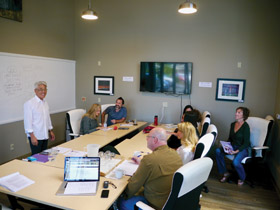 VenturePad also offers regular, stand-alone Lunch & Learns, which take place from noon to 1 p.m., twice a month, and feature guest speakers on a variety of topics ranging from public speaking to turning ideas into action. Yet another opportunity is the Marintrepreneurs Peer Advisory Group, a support group that meets twice a month to shares ideas, practice pitches and give each other feedback. Yalonis, Moreno and seasoned entrepreneurs attend to give advice and lend their expertise.
VenturePad also offers regular, stand-alone Lunch & Learns, which take place from noon to 1 p.m., twice a month, and feature guest speakers on a variety of topics ranging from public speaking to turning ideas into action. Yet another opportunity is the Marintrepreneurs Peer Advisory Group, a support group that meets twice a month to shares ideas, practice pitches and give each other feedback. Yalonis, Moreno and seasoned entrepreneurs attend to give advice and lend their expertise.
In addition, a team of 80 smart, experienced executives and investors give advice on strategic issues, such as revenue streams, key partners, essential resources, how to build a supply chain and customer acquisition. As VenturePad’s incubator evolves, advisors meet weekly with new entrepreneurs and help them build a small advisory board with sector and discipline experts. Yalonis gives the hypothetical example of a cool, new restaurant in San Rafael’s Canal neighborhood, with an owner who would get advice from advisors experienced in food branding, who perhaps would make suggestions on new ways to deliver food, too. VenturePad also has experts who offer pro bono or highly discounted services, such as graphic design, branding, copywriting and prototype building—many of which services startups need but can’t afford. “We do those kinds of referrals almost on a daily basis,” says Yalonis. A member entrepreneur might need to set up an accounting system, for instance, he says, and the VenturPad team already knows several bookkeepers. “They’re vetted; they’re proven,” he adds.
Funding is always an issue. “Every week, we have people coming here looking for investment money,” says Yalonis. Though VenturePad doesn’t provide funding per se, it offers suggestions and might recommend routes such as crowd funding, a microloan from Working Solutions or borrowing money from friends and family. In the latter case, they might find someone to prepare documents that will avoid problems and keep family members talking to each other. VenturePad will also introduce business owners to angel investors, if it’s appropriate.
Yalonis and Moreno took the search for financing a step further in June 2018, when they offered new entrepreneurs a chance to explore issues related to acquiring working capital in depth. Finance Your Business Summit, an evening event at the San Rafael Community Center, included a panel of entrepreneurs, workshops that examined financing for businesses at various stages, networking and exhibitors. Among the speakers were Laurie O’Hara, director of business development and marketing for Working Solutions, and Marin County Supervisor Damon Connolly. Event partners included Marin Economic Forum, Marin’s Small Business Development Center and the City of San Rafael, among others.
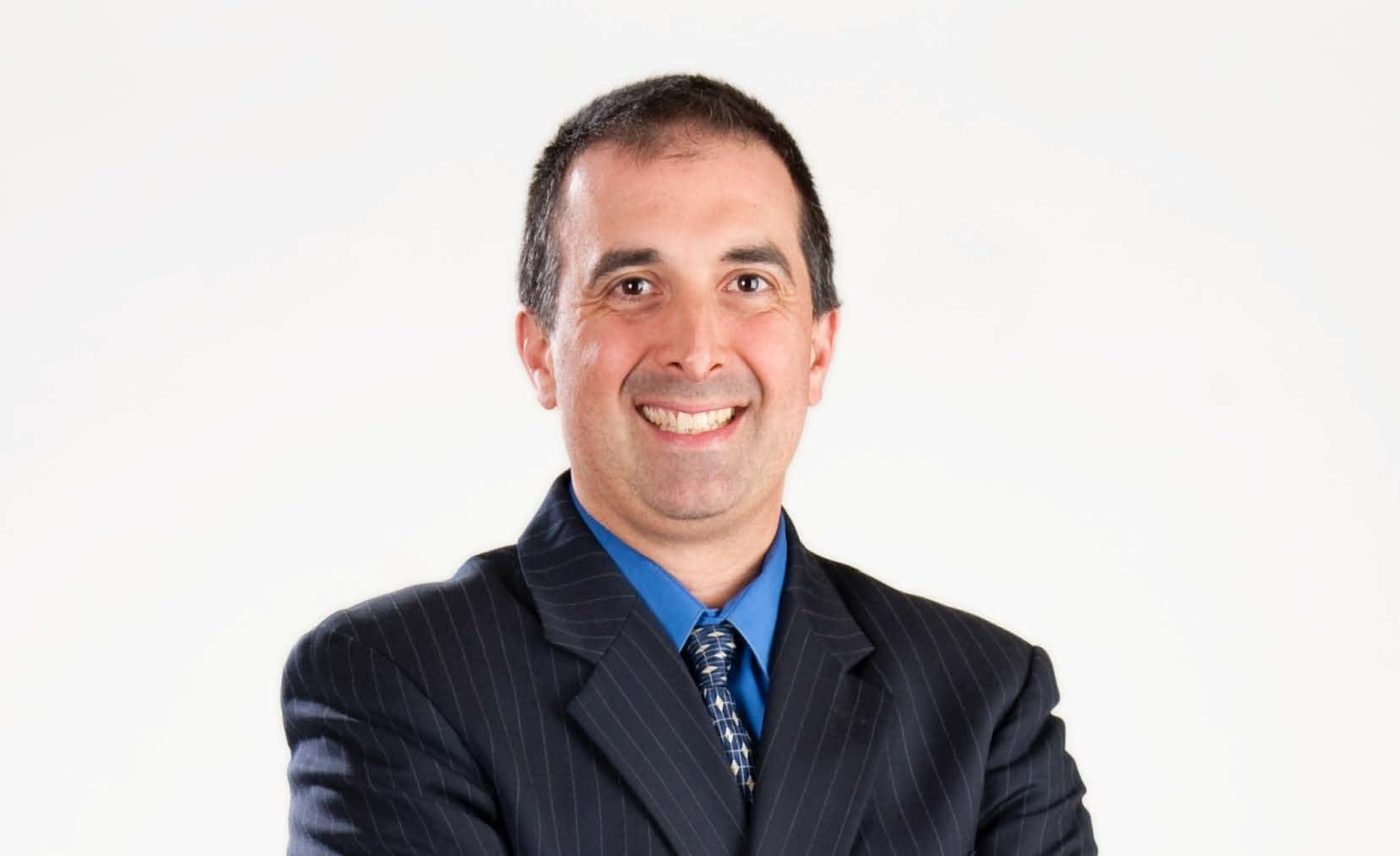 This summer, VenturePad makes its incubator official with the opening of VentureWorks, which will be Marin County’s sole incubator. It began receiving applications in June, and planned to launch when it had accepted 10, likely in August. Its goal is to launch 10 new businesses a year and support 30 more in an affiliate program that offers support services. Rob Eyler, Marin Economic Forum’s chief economist, observes that VenturePad isn’t Marin’s first incubator, but is its most successful, because its founders learned from Venture Greenhouse’s experience and were cognizant of the need for financial sustainability and a culture of entrepreneurship. “Marin County is not a tough place to start a business; there are hundreds of businesses that start each year in Marin County,” he says. But without a resource like VenturePad, the road is bumpy. “The key is providing resources for a business to grow, learn, find capital and ultimately succeed,” he says. “Chris and his team seemed to have found a formula that works, and it is great for local economic development.” He points out that new businesses lead to a growth in jobs and income and support Marin’s communities, and he believes local policymakers should take notice. “Supporting this resource and partnering across the county to help VenturePad continue to grow and stay relevant is good now and when the next recession comes, to help lift up people looking to make a change in their lives to pursue their dreams.”
This summer, VenturePad makes its incubator official with the opening of VentureWorks, which will be Marin County’s sole incubator. It began receiving applications in June, and planned to launch when it had accepted 10, likely in August. Its goal is to launch 10 new businesses a year and support 30 more in an affiliate program that offers support services. Rob Eyler, Marin Economic Forum’s chief economist, observes that VenturePad isn’t Marin’s first incubator, but is its most successful, because its founders learned from Venture Greenhouse’s experience and were cognizant of the need for financial sustainability and a culture of entrepreneurship. “Marin County is not a tough place to start a business; there are hundreds of businesses that start each year in Marin County,” he says. But without a resource like VenturePad, the road is bumpy. “The key is providing resources for a business to grow, learn, find capital and ultimately succeed,” he says. “Chris and his team seemed to have found a formula that works, and it is great for local economic development.” He points out that new businesses lead to a growth in jobs and income and support Marin’s communities, and he believes local policymakers should take notice. “Supporting this resource and partnering across the county to help VenturePad continue to grow and stay relevant is good now and when the next recession comes, to help lift up people looking to make a change in their lives to pursue their dreams.”
“With our incubator and support services, we’re trying to create businesses here,” says Yalonis. “We’re going to help grow companies in the county so people can earn a living and keep jobs here and not have to commute.” It’s a lofty goal that comes with the substantial challenges the county is facing, but VenturePad is actively seeking ways to help solve some of Marin’s problems, and, says Yalonis, “VenturePad wants to work at this intersection of public-private collaboration.”
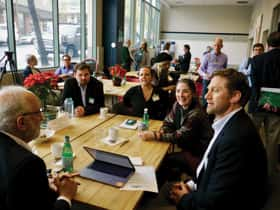 Among its large-scale efforts, it was the driving force for Marin’s first Sustainable Enterprise Conference, which took place in October 2017 and drew 300 business and community leaders. “We didn’t want talking heads. We wanted to have interactivity,” says Yalonis. He explains that speakers can be inspirational, but the call to action often dissipates quickly, and the idea was to help people make connections that would last and lead to positive change. The day included five hours of workshops that explored strategies for sustainable solutions in areas such as transportation, sea-level rise and workforce housing. Tom Steyer, hedge fund manager, philanthropist and environmentalist, was a guest speaker. “We had a track on best practices,” says Yalonis, with speakers such as Albert Straus, who has created a widely adopted model for organic dairying, and John Wick, a leader in carbon farming. “If we do it right as a county, carbon farming could be a model for farmland all over the country,” says Yalonis, pointing out that such efforts show innovation in Marin. He views VenturePad’s job as bringing together experts from business, science and public agencies with policymakers and facilitating collaboration. Building on last year’s success, the second Marin Sustainable Enterprise Conference will take place on October 25.
Among its large-scale efforts, it was the driving force for Marin’s first Sustainable Enterprise Conference, which took place in October 2017 and drew 300 business and community leaders. “We didn’t want talking heads. We wanted to have interactivity,” says Yalonis. He explains that speakers can be inspirational, but the call to action often dissipates quickly, and the idea was to help people make connections that would last and lead to positive change. The day included five hours of workshops that explored strategies for sustainable solutions in areas such as transportation, sea-level rise and workforce housing. Tom Steyer, hedge fund manager, philanthropist and environmentalist, was a guest speaker. “We had a track on best practices,” says Yalonis, with speakers such as Albert Straus, who has created a widely adopted model for organic dairying, and John Wick, a leader in carbon farming. “If we do it right as a county, carbon farming could be a model for farmland all over the country,” says Yalonis, pointing out that such efforts show innovation in Marin. He views VenturePad’s job as bringing together experts from business, science and public agencies with policymakers and facilitating collaboration. Building on last year’s success, the second Marin Sustainable Enterprise Conference will take place on October 25.
On a lesser scale, interaction with the community was one of VenturePad’s intents from the outset, and in addition to signature events that promote economic development and sustainability, it hosts smaller gatherings, such as San Rafael Chamber of Commerce’s mixers and meetings of Resilient Neighborhoods. In 2017, it also hosted #YesWeCode, a Dream Corps initiative that aims to teach technology skills to 100,000 young people from underserved communities to meet the increasing need for software developers. The class consisted of 30 mostly young people from low-income neighborhoods in Marin County, whom Yalonis describes as smart and driven and ready to put their blood, sweat and tears into learning valuable technical skills. The training included the web application tool, Ruby on Rails, and multiple languages, such as Java, Python and HTML. “Our job was to host them and provide resources,” says Yalonis, and one of the advantages for the students was the opportunity to attend VenturePad’s networking events, which included potential employers. “We did our best to connect them with people who were hiring,” he adds, reporting that one student got a job as an analyst at Marin Economic Forum as a result.
Community
Much of what VenturePad does is part of being an engaged member of the arts community and a good neighbor. It participated in Marin Open Studios for two weekends in May, making wall space available for the works of painter Jane Heaphy, and it regularly displays art from the artists at Art Works Downtown. It’s a mutually beneficial arrangement. “The artists get lots of eyeballs, and we get free, beautiful art,” Yalonis observes. VenturePad also participates in San Rafael’s Second Friday Art Walk, often with music from its house band, the Venture Jammers, which features Yalonis on drums and Moreno playing percussion. VenturePad even has a place for kids, making space available for the Game Academy, a program that meets three times a week for two-hour sessions and uses tabletop and live-action role-playing games to teach decision-making skills, collaboration, and lessons in core academic subjects to children ages 8 to 18.
It’s been a busy year-and-a-half, and VenturePad is thriving. It’s accomplished its primary goal—creating something inclusive and growth-oriented. “I feel blessed about many things,” says Yalonis. He reports that more than 260 members, including solopreneurs, startups, telecommuters and large and small businesses have taken advantage of VenturePad’s services, and larger, more visible companies are joining such as Pacific Sun and Genentec. Several new businesses have gotten off to a good start, connected with others and moved on because they needed more space. In addition, VenturePad is financially viable despite hefty rent for a startup. It has organized well-attended summits on financing, cleantech and sustainable enterprise, and in April, was named Green Business of the Year by the City and Chamber of San Rafael. “We were able to achieve positive cash flow within one year,” he says. He and Moreno find satisfaction in what they’ve been able to establish as entrepreneurs, and more is yet to come. By all accounts, VenturePad is a success story.
Features
VenturePad offers the following amenities to members who use its co-working space:
• 4 meeting rooms
• 3 private booths for phone calls or video chats
• Kitchen
• Ultra-fast Wi-Fi
• Quiet Zone
• Residents’ Desks
• Open green co-working space
• Convenient parking
Educational and networking opportunities include the following:
• Clean Tech Summit
• Entrepreneur Peer Advisory Groups
• Finance Your Business Summit
• Lunch & Learn guest talks
• Marin Sustainable Enterprise Conference
Services
VenturePad offers a wide range of support with the following services:
• Advisory support
• Classes
• Conferences
• Co-working spaces
• Finding Funding
• Incubator and accelerator
• Lunch & Learn
• Meeting spaces
• Peer networks
• Social events
• Training
• Workshops
• Youth programs


